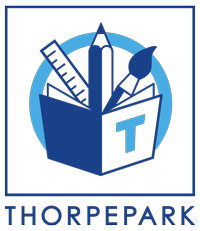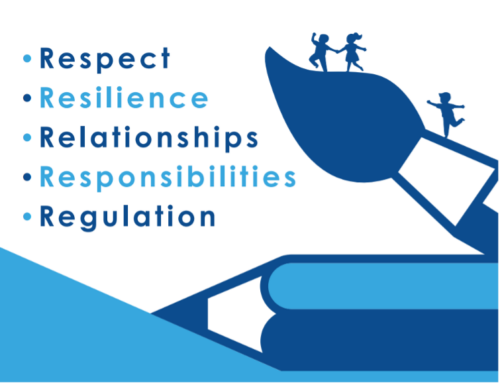Special Educational Needs & Disability
What are special educational needs?
At Thorpepark Academy, we are committed to offering an inclusive curriculum and provision to all of our pupils. We ensure that pupils with special educational needs and disabilities are included in all aspects of learning and school life. We adapt our teaching and children’s learning to meet their needs and work in close partnership with parents and other agencies to provide support.
What are special educational needs and disability?
A child or young person has special educational needs and disability and is on the SEND register if they have a learning difficulty or disability which calls for special educational provision to be made for them. A learning difficulty or disability is a significantly greater difficulty in learning than the majority of others of the same age.
Children may find learning difficult for a range of different reasons. For example they may have a speech and language delay and need support from speech therapy, have underlying learning difficulties such as dyslexia, dyspraxia, dysgraphia, have a medical condition or disability which requires additional support or experiencing emotional and well-being difficulties.
Special educational provision means that it is additional to, or different from, that made generally for others of the same age in a mainstream setting in England.
Health care provision or social care provision which educates or trains a child or young person is to be treated as special educational provision.
What should I do if I think my child might have special educational needs?
If you do have any concerns about your child, make an appointment to have a chat with your child’s class teacher. They will listen to any concerns you have and discuss what your child is like in school.
You can then decide together on what happens next. This may include a period of monitoring and evidence gathering or putting in some extra strategies and support. Sometimes it might be felt that a meeting with the SENDCo and advice from external agencies may be needed.
What happens if the school has concerns about my child’s progress?
If the class teacher or other staff within the school have any concerns they will arrange to meet with you to discuss what the concerns are. It is important that we share these concerns and listen to your views.
You can decide together on what happens next. This may include a period of monitor, evidence gathering, meeting with the SENDCo or referring for advice from external agencies.
Further information:
What is a local offer?
In Hull there’s lots of support available to children with disabilities and special educational needs, and their families. You’ll find information about that Local Offer of support here.
Whether it relates to education, health, social care or parental support, and regardless of who’s providing it, we’ll aim to point you in the right direction.
Click below to visit the Hull Local Offer website :-
The local offer provides information on what services children, young people and their families can expect from a range of local agencies, including education, health and social care. Knowing what is out there gives you more choice and therefore more control over what support is right for your child.
The local offer provides information on a number of things, including:
- special educational provision;
- health provision;
- social care provision;
- other educational provision;
- training provision;
- travel arrangements for children and young people to schools, colleges and early years education; and
- preparing for adulthood, including housing, employment and leisure opportunities.

“Leaders are committed to and highly skilled in supporting pupils who struggle to manage their own behaviour.”
“There is a truly inclusive ethos.”
“Pupil mentors support younger pupils and those new to the school.”
“Pupils are well prepared for secondary education.”
“Children in the early years get off to a good start.”
“Many parents appreciate the adult learning and volunteering opportunities available to them.”
“Pupils often benefit from bespoke plans which are matched to their needs.”
“Pupils thrive at Thorpepark Academy.”
“Parents work in partnership with leaders and staff.”
“By the end of key stage 2 pupils have secure knowledge in English and mathematics.”
“Pupils are motivated to learn. They enjoy lessons and they achieve well.”
“Pupils enjoy being active citizens and getting paid in credits they can spend in the school shop.”
“Leaders have designed the curriculum to develop pupils’ sense of belonging, identity and pride in being from Hull.”
“Pupils understand how to keep their minds and bodies healthy.”
“Leaders, including the trust, ensure that pupil, parent and staff well-being is a top priority.”
“The curriculum for pupils with special educational needs and/or disabilities (SEND) is well designed.”
“Extra-curricular clubs are carefully chosen to stretch individual pupils’ talents in music, sport and other areas, including sewing.”
“Leaders have ensured that the teaching of reading is strong.”
“Lots of initiatives are in place to encourage pupils’ love of reading.”
“Pupils are exposed to a wide range of high-quality books.”
“Leaders prioritise pupils’ well-being.”
“Leaders know the pupils, their families and the community very well.”
“Pupils learn about people and places from their local area in all subjects.”
“Pupils love the ‘Thorpepark 50’.”
“Pupil ambassadors check on other pupils’ well-being.”
“The school’s offer for pupils’ personal development is exceptional.”
“Pupils learn the importance of contributing to their community.”
“Pupils are motivated to learn.”
“Pupils know ways to raise their own self-esteem and that of others.”
“Pupils are empathetic and show understanding of other pupils’ needs.”








